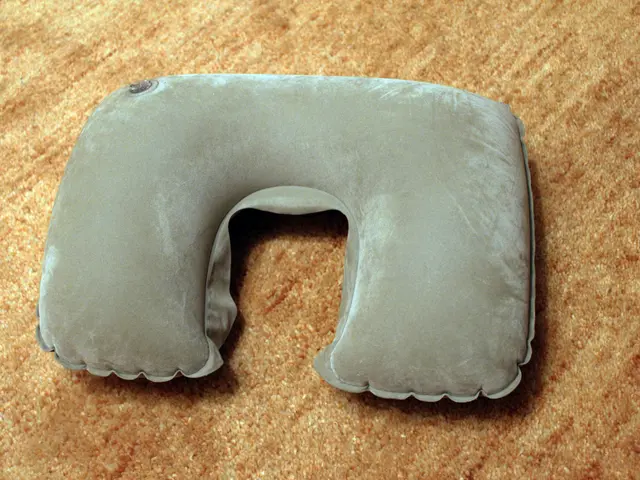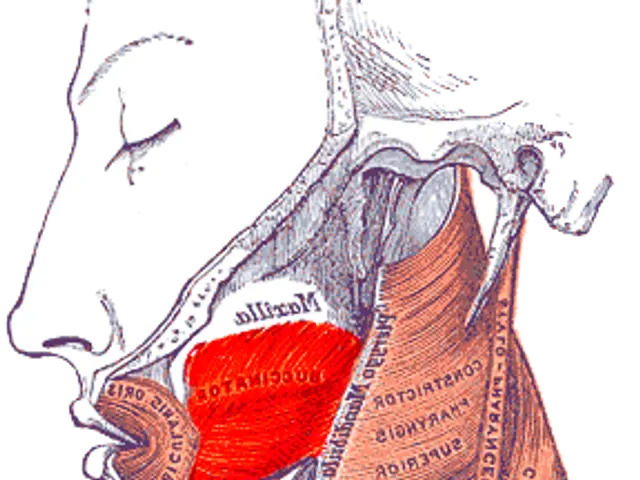Managing Hot Flashes Through Dietary Adjustments
Hey there! If you're going through menopause, pay close attention to what you're chomping down on, as it might just be the key to taming those hot flashes.
Did you know that adopting the Mediterranean diet can help reduce the likelihood of hot flashes and night sweats by 20%? This diet focuses on plant-based foods, healthier fats, and a variety of fruits and veggies – sounds like a delicious way to manage your symptoms!
When it comes to specific foods, here are some tasty options to help cool things down:
- Soy-based Goodies: Did you know soy can help bring down the frequency and intensity of hot flashes? Studies show that these plant-based wonders can reduce hot flashes by over 25%. Give tofu, edamame, soy milk, and tempeh a try!
- More Phytoestrogens, Please!: Phytoestrogens, found in whole grains like oats, barley, and wheat, seeds (flaxseed and sesame seeds), legumes (like lentils and various types of beans), and berries (such as blackberries, blueberries, and strawberries), can potentially help regulate hormones and manage hot flashes.
- Veggie Power: Stock up on veggies to help you keep weight in check during menopause. A study showed that weight loss can actually help reduce hot flashes! Try incorporating asparagus, zucchini, and other veggies into your meals.
- Omega-3s: Foods rich in omega-3 fatty acids, like salmon, sardines, flaxseeds, chia seeds, and avocados, may offer some relief for hot flashes.
- Cooling Fruits and Veggies: Ever noticed some fruits and veggies feel extra refreshing? That's because they help keep you hydrated which, in turn, might help lower the intensity of hot flashes. Try Watermelon, apples, bananas, carrots, cucumbers, romaine lettuce, or pears.
But what about the heat-producers? There are also certain foods that you might want to limit:
- Processed Food: Eating ultra-processed food has been linked with heightened blood pressure, which might up your chances of experiencing hot flashes. Consider cutting back on baked goods, sugary drinks, fast foods, and fried food items.
- Caffeine Overload: If you rely on caffeine to keep you awake during those hot flash-induced sleepless nights, think again, because that caffeine could actually be adding fuel to the fire! Opt for green tea, chicory coffee, or other coffee alternatives to minimize your caffeine intake.
- Alcohol: We all know that alcohol isn't great for our health, and when it comes to menopause, it can lead to increased hot flashes and night sweats. Keep your intake moderate, or opt for non-alcoholic alternatives.
- Spicy Food: Don't elbow a chili pepper when you're already on fire! Spicy food can sometimes trigger hot flashes, so be mindful of the spices you use in your meals.
Keeping a food diary might help you identify patterns and potential triggers that could be affecting your hot flashes. Consult a healthcare provider before making any drastic dietary changes. They may provide additional strategies to help manage your hot flashes. Enjoy your meals and stay comfortable!
- It's crucial for women experiencing menopause to consider the Mediterranean diet, as it has been shown to decrease the risk of hot flashes and night sweats by 20%. This diet emphasizes plant-based foods, healthier fats, and an array of fruits and vegetables.
- To help combat hot flashes, consider incorporating soy-based goods like tofu, edamame, soy milk, and tempeh into your diet. These foods can potentially reduce hot flashes by over 25%.
- If you're aiming to manage menopause-related weight gain, focusing on a health-and-wellness diet with an emphasis on vegetables, such as asparagus, zucchini, and other veggies, can help reduce hot flashes.








